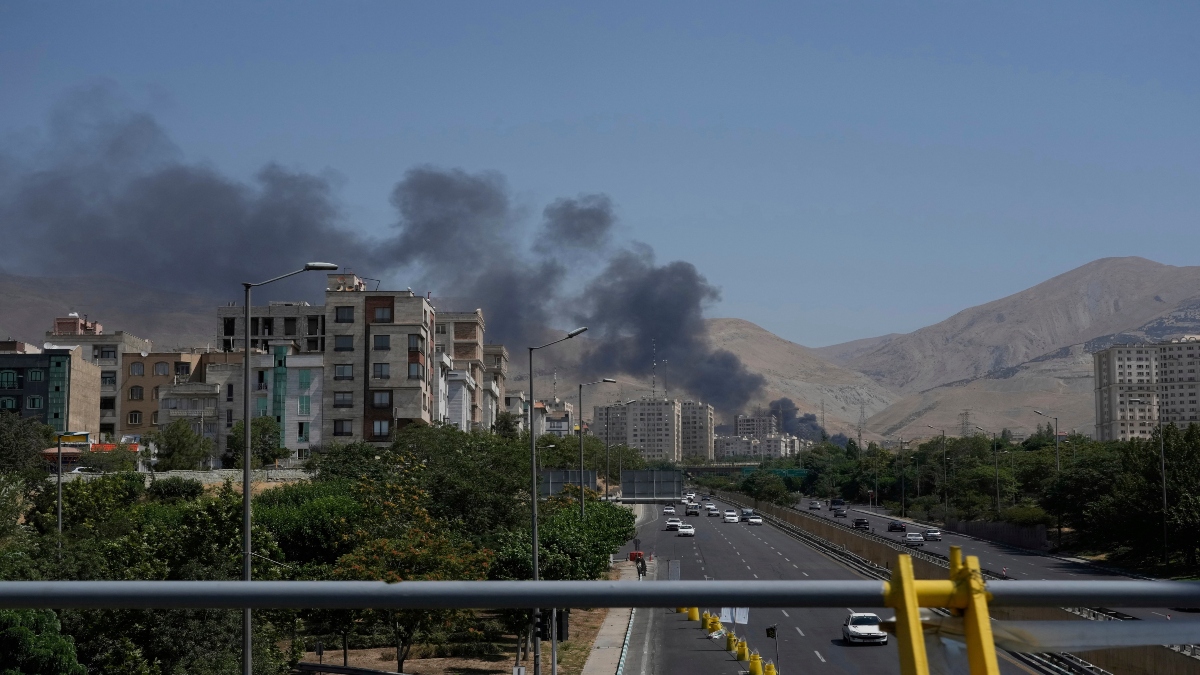Iran has been urgently signaling its desire to de-escalate tensions and resume negotiations over its nuclear programme, according to a Wall Street Journal report, citing Middle Eastern and European officials.
Tehran has conveyed messages to both Israel and the United States through Arab intermediaries, expressing openness to renewed talks, provided the US refrains from joining Israel’s ongoing military offensive.
Iranian officials have also told Arab counterparts that it is in both Tehran’s and Tel Aviv’s interest to prevent further escalation and keep the violence contained, added the report.
With Israeli warplanes operating freely over Tehran and Iranian counterattacks causing minimal damage, Israel has little reason to pause its offensive.
The strikes have killed key military figures, including much of Iran’s air force leadership, leaving Supreme Leader Ayatollah Ali Khamenei increasingly isolated.
However, damage to Iran’s nuclear infrastructure has been limited, and analysts warn it may take a prolonged air campaign to achieve Israel’s objectives.
Prime Minister Benjamin Netanyahu has vowed to continue the assault until Iran’s nuclear and missile capabilities are dismantled. While he insists regime change isn’t the goal, he acknowledges it could be an outcome.
Israeli officials say the military is prepared for at least two more weeks of strikes.
On Saturday, French President Emmanuel Macron urged his Iranian counterpart to “return swiftly to the negotiating table and reach an agreement,” while Arab leaders have called for an immediate end to the fighting.
Impact Shorts
More ShortsAfter months of restraint, President Trump has now thrown his support behind Israel’s military campaign.
“I think it’s time for a deal, and we’ll see what happens, but sometimes they have to fight it out,” WSJ quoted Trump as telling reporters on Sunday.
A pause in fighting could give Iran valuable time to regroup and allow international pressure to mount against Israel’s offensive. It would also be a strategic win for Tehran if it can keep the US from deploying its bunker-busting capabilities.
According to the WSJ report, citing Arab diplomats who have spoken with Iranian officials, Tehran is betting that Israel won’t want to get bogged down in a prolonged conflict and will ultimately be forced to seek a diplomatic resolution.
Iranian officials said they thought Israel lacked a clear exit strategy and would need US help to do meaningful damage to targets such as the Fordow uranium-enrichment facility, which is buried under a mountain.
“The Iranians know the US is supporting Israel in its defence, and they are sure the US is supporting Israel logistically,” WSJ quoted an Arab official as saying.
“But they want guarantees the US won’t join the attacks,” added the official.
Iran has warned Arab officials it may accelerate its nuclear program and expand the conflict if there’s no path back to talks with the US.
However, Arab intermediaries say Tehran has shown no sign of offering new concessions. The Trump-led diplomatic effort had already stalled over Iran’s refusal to halt uranium enrichment, before Israeli strikes cut talks short last week.
A senior Israeli official had said ending enrichment was the bare minimum Israel could accept. Israel and its Gulf allies also remain deeply concerned about Iran’s ballistic missile program and support for regional militias — issues that could re-enter negotiations if Iran feels enough pressure.
Israel has targeted nuclear sites, military leaders, and now energy infrastructure, with Iran responding in kind. Civilian casualties continue to climb on both sides.
Meanwhile, Persian Gulf states including Saudi Arabia, Qatar, and Oman are urging the U.S. to rein in Israel, warning that a wider conflict could threaten regional energy assets and destabilise global oil markets.
With inputs from agencies
)